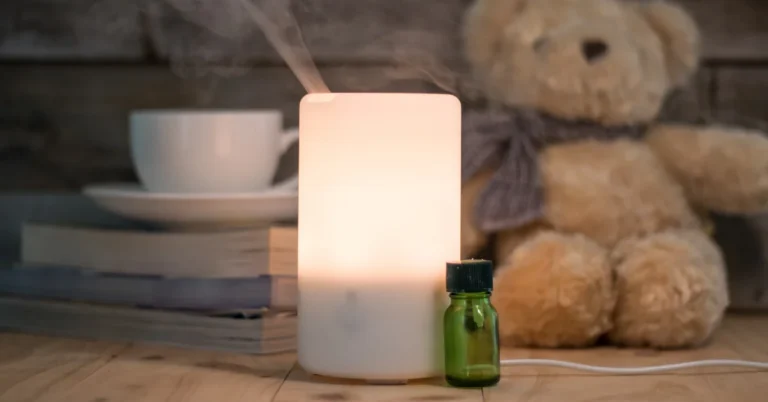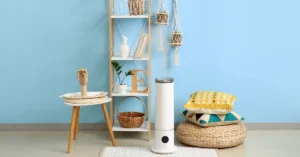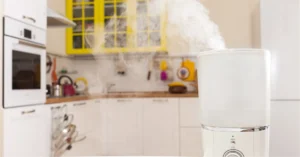Introduction
Struggling with dry air that irritates your skin and sinuses during winter? You’re not alone! Many homeowners find that low indoor humidity levels lead to discomfort, cracked skin, and even damage to wooden furniture. A whole house humidifier might just be the solution you didn’t know you needed.
But is a whole house humidifier worth it? In this post, we’ll explore how these systems work, the benefits they offer, and whether they’re a smart investment for your home. By the end, you’ll have a clear idea of whether it’s time to upgrade your home’s comfort.
What is a Whole House Humidifier?
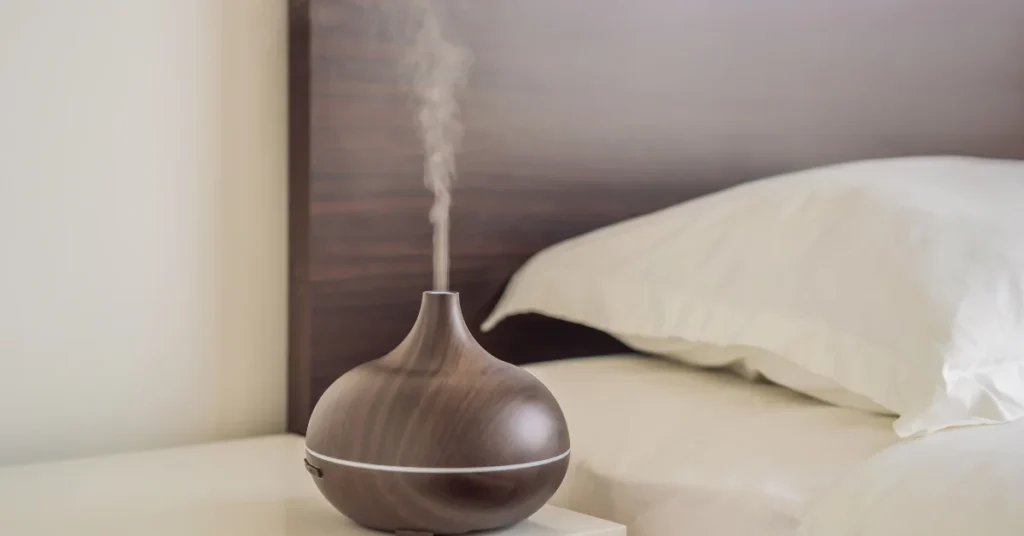
A whole house humidifier is a system that works alongside your home’s heating and cooling system to add moisture to the air. Unlike portable humidifiers that only treat a single room, these systems humidify the air throughout your entire house. They’re typically installed directly into your HVAC system, ensuring that every time your furnace or air conditioner runs, the air gets balanced with the right amount of moisture.
There are a few different types of whole house humidifiers, including:
- Bypass Humidifiers: These use your furnace’s air to add humidity, making them energy-efficient.
- Fan-Powered Humidifiers: A built-in fan forces air through the humidifier’s water panel, making them effective even when your HVAC system isn’t running.
- Steam Humidifiers: These are the most powerful and can quickly add moisture to larger homes, though they tend to be more expensive.
Each type has its pros and cons, but they all share one goal: to maintain the perfect humidity levels in your home.
How Does a Whole Home Humidifier Work?
A whole home humidifier works by introducing water vapor into your home’s air supply. Here’s how it typically operates:
- Water Supply: The humidifier is connected to your home’s water line. It uses this water to create moisture, either through evaporation or steam, depending on the model.
- Moisture Distribution: As your HVAC system runs, the humidifier releases water vapor into the air. Bypass and fan-powered humidifiers usually use your furnace’s warm air to help evaporate water, while steam humidifiers generate steam directly.
- Air Circulation: The humidified air then moves through your ductwork and into every room, creating balanced humidity levels throughout your home.
- Control System: Most whole house humidifiers come with a humidistat, which works like a thermostat but measures humidity. You can set your desired humidity level (usually between 30-50%), and the system will turn on or off as needed to maintain that balance.
With this system, you’re no longer relying on standalone units to humidify one room at a time—every part of your home benefits from consistent moisture levels.
Benefits of a Whole House Humidifier
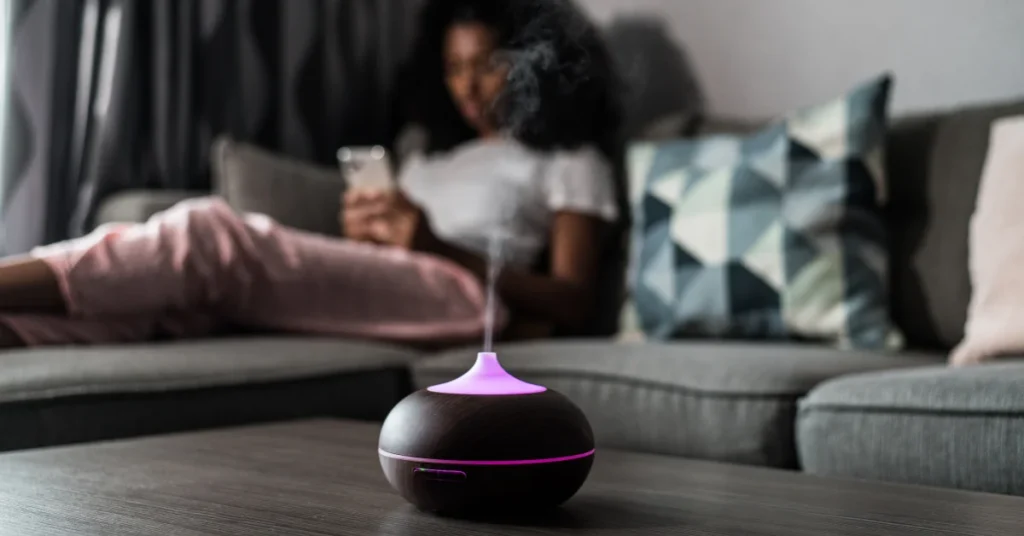
A whole house humidifier offers several advantages that go beyond just adding moisture to the air. Let’s break down some of the key benefits:
- Improved Comfort: Dry air can leave your skin feeling itchy and irritated, not to mention those annoying chapped lips! Whole house humidifiers restore the moisture in the air, making your home more comfortable. Say goodbye to static electricity and dry throats, especially during the winter months.
- Health Benefits: Humid air can help ease respiratory problems, especially for those with allergies, asthma, or sinus issues. Proper humidity levels help keep nasal passages moist, reducing the risk of infections and making it easier to breathe. This can also reduce symptoms like dry eyes or scratchy throats.
- Energy Efficiency: Did you know that humid air feels warmer than dry air? This means that with balanced humidity, you may be able to turn down your thermostat and still feel comfortable, potentially lowering your energy bills.
- Protects Your Home: Dry air can cause wood furniture, floors, and even musical instruments to crack or warp over time. By maintaining the right humidity levels, you’re also protecting your home’s structural integrity and belongings from damage.
- Low Maintenance: Compared to portable humidifiers, whole house systems are relatively low-maintenance. Once installed, you only need to check and clean the unit periodically to ensure it’s running efficiently.
Do Whole House Humidifiers Work?
Yes, whole house humidifiers do work—and they work quite effectively! These systems are designed to maintain consistent humidity levels across your entire home, unlike portable units that only affect a single room. Here’s why they’re considered efficient:
- Even Distribution: Whole house humidifiers ensure that every room benefits from the same humidity levels. So, no more walking from a perfectly balanced living room into a dry bedroom or vice versa. The air in your home stays uniform, which improves comfort in every corner.
- Tailored Humidity Control: With a built-in humidistat, you can control exactly how much moisture is added to the air. This eliminates the guesswork and avoids issues like over-humidification, which can happen with smaller, standalone units.
- Consistent Performance: Since whole house humidifiers are integrated with your HVAC system, they perform consistently whenever the heating or cooling system is on. There’s no need to fill water tanks or move units around, making them much more convenient.
Overall, when properly installed and maintained, whole house humidifiers provide reliable results that make them a worthwhile investment for most homes.
Are Whole House Humidifiers Safe?
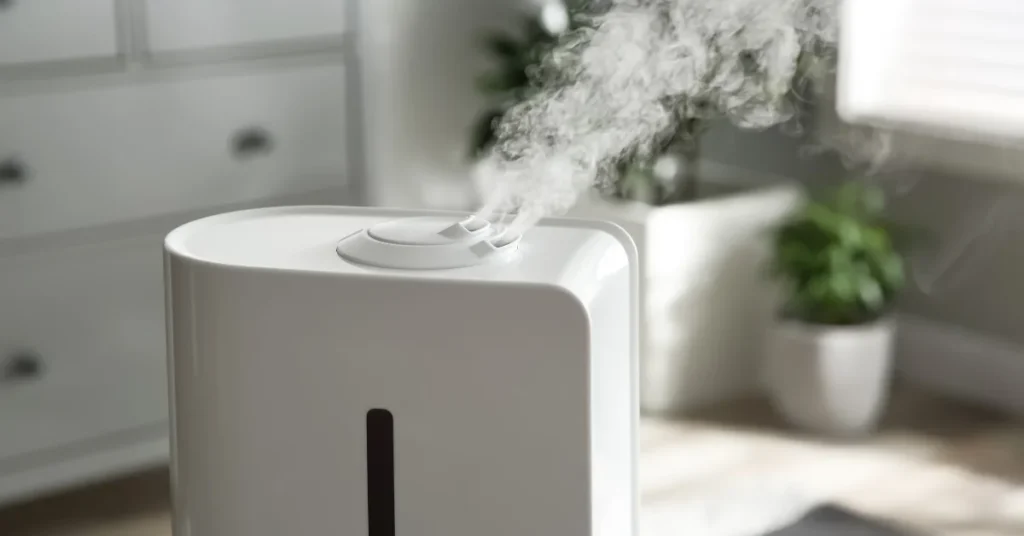
Whole house humidifiers are generally safe when properly installed and maintained. However, like any home appliance, there are a few safety considerations you should be aware of to ensure they continue to operate effectively and without issues.
- Avoiding Mold and Mildew: One of the primary concerns with humidifiers is the potential for mold growth if the air becomes too humid. However, this risk can be easily managed by setting your humidistat to a balanced level (around 30-50% humidity). Regular maintenance, such as cleaning the system and replacing water panels, also helps prevent any moisture build-up in your ducts or airways.
- Preventing Over-Humidification: While it’s tempting to crank up the humidity during the colder months, too much moisture can cause condensation on windows, walls, or even furniture, leading to damage over time. With a whole house humidifier, this risk is minimal because you can precisely control the humidity levels, but it’s still important to monitor these settings to avoid over-humidification.
- Water Quality: Hard water can leave mineral deposits in your humidifier system, which might reduce its efficiency over time. Using a water softener or cleaning the system regularly will keep it functioning optimally and safely.
- Maintenance and Inspection: Regular maintenance is key to keeping your whole house humidifier safe. Cleaning or replacing filters, checking water lines for leaks, and ensuring that the system isn’t clogged with mineral buildup can prevent safety issues down the line.
When used correctly, whole house humidifiers are not only safe but can significantly improve the comfort and health of your home.
Do Furnace Humidifiers Work?
Yes, furnace humidifiers (which are a type of whole house humidifier) work effectively by adding moisture to the air as it flows through your home’s heating system. Here’s how and why they’re a popular choice:
- Integration with HVAC Systems: Furnace humidifiers are installed directly into your HVAC system. They work whenever your furnace is running, allowing them to distribute moisture evenly throughout your home. Because they use the existing ductwork, they efficiently humidify large areas without the need for additional equipment.
- Energy Efficiency: These humidifiers make good use of your furnace’s natural airflow. Bypass and fan-powered models use minimal energy since they rely on your furnace’s airflow to function. Steam models use more energy but are still efficient, especially in larger homes where humidity levels need more precise control.
- Convenience: Once installed, furnace humidifiers are low-maintenance and don’t require constant refilling like portable units. As long as they’re checked annually during HVAC maintenance, they will continue to work reliably season after season.
- Cost-Effective: While the initial installation of a furnace humidifier might seem pricey, the long-term benefits—reduced energy bills, improved air quality, and increased comfort—can make them a worthwhile investment.
Furnace humidifiers are a reliable solution for whole home humidity control, especially during the cold months when indoor air tends to be driest.
Cost vs. Benefit Analysis
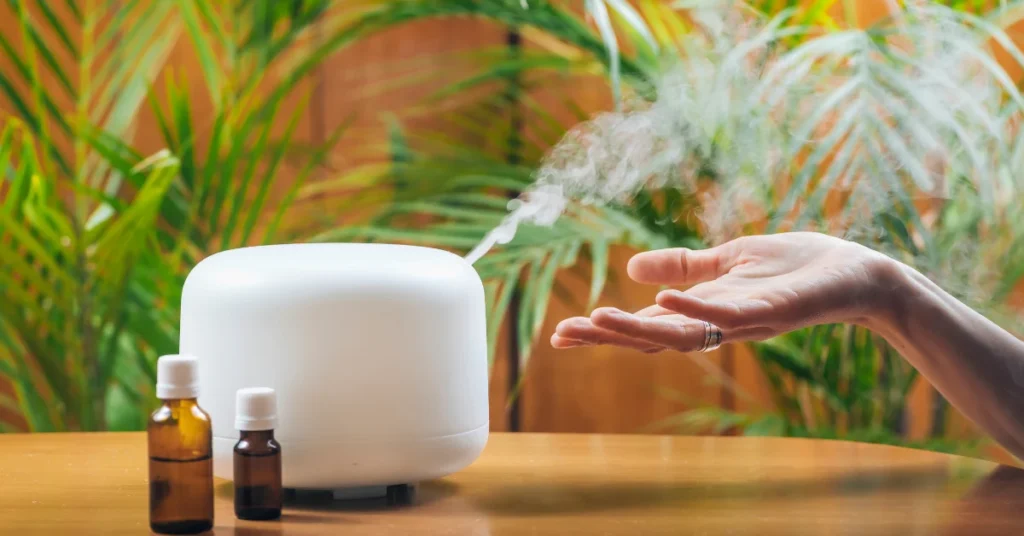
When deciding if a whole house humidifier is worth the investment, it’s important to weigh the upfront costs against the long-term benefits. Here’s a breakdown of what you can expect:
Upfront Costs
- Installation: Installing a whole house humidifier typically costs between $400 and $1,200, depending on the type of system and your home’s size. Steam models tend to be more expensive, while bypass models are more affordable.
- Unit Price: Humidifiers themselves can range from $150 for basic models to $600 or more for advanced, high-capacity units.
Long-Term Savings:
- Lower Energy Bills: Proper humidity levels make the air feel warmer, so you can lower your thermostat by a few degrees without sacrificing comfort. This can lead to significant energy savings during winter, reducing heating bills by 10-15%.
- Extended Home Lifespan: By maintaining consistent humidity, you’re also protecting your wood floors, furniture, and even your home’s structure from damage caused by dry air, potentially saving thousands in repair costs.
Maintenance Costs:
- Annual maintenance typically costs between $100 and $300, including cleaning, checking water lines, and replacing filters or pads. These minor upkeep costs help the system last longer and run efficiently.
Comfort and Health Benefits:
- The comfort of balanced humidity is hard to put a price on. Beyond financial savings, you’ll experience fewer respiratory issues, reduced dry skin, and improved sleep quality.
Conclusion: While the initial costs of a whole house humidifier may seem high, the long-term benefits in terms of comfort, energy savings, and home protection often outweigh the investment. If you live in a region with dry winters, the system can pay for itself over time.
Can Ecobee Control a Humidifier?
Yes, Ecobee smart thermostats can control a whole house humidifier, offering a convenient and efficient way to manage your home’s humidity levels. Here’s how the integration works:
- Seamless Connection: Ecobee thermostats can be wired directly to your whole house humidifier, allowing you to control both your heating/cooling system and humidity from one central device. This means you can adjust the humidity levels with a few taps on the Ecobee app or thermostat itself.
- Automation and Smart Control: Ecobee’s smart technology allows you to automate your home’s humidity settings. You can program the system to maintain optimal humidity levels based on the time of day or outdoor weather conditions. For example, if it’s especially dry outside, Ecobee will automatically increase your indoor humidity to keep things comfortable.
- Energy Efficiency: By integrating your humidifier with Ecobee, you can ensure that your home’s humidity is optimized for energy savings. You can even receive alerts if humidity levels are too high or too low, helping you avoid problems like mold growth or excessive dryness.
- Voice Control: Ecobee is compatible with voice assistants like Amazon Alexa and Google Assistant. This means you can adjust your humidifier settings just by speaking a command, making it even more convenient to manage your indoor comfort.
Incorporating your humidifier with a smart thermostat like Ecobee not only simplifies control but also ensures you’re always maximizing comfort while maintaining energy efficiency.
Is a Canopy Humidifier Worth It?
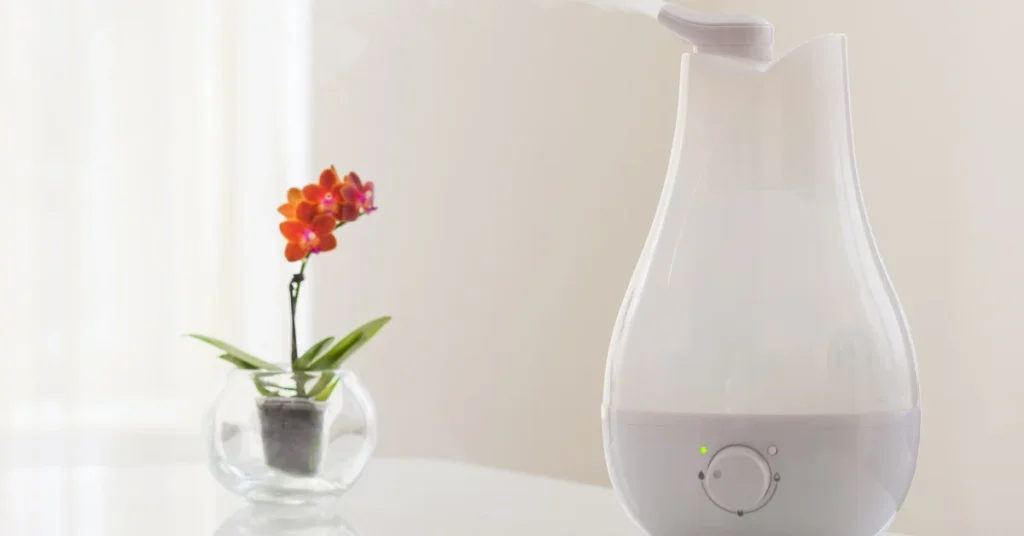
If you’re considering a smaller, more portable option like a Canopy humidifier, you might wonder how it stacks up against a whole house system. While Canopy humidifiers are popular for individual rooms, they serve a different purpose compared to whole house humidifiers.
- Room-Specific Use: Canopy humidifiers are designed for use in single rooms. If you only need to humidify a bedroom or small office, they’re a solid option. However, they won’t offer the comprehensive, whole-home coverage that a whole house humidifier provides.
- Portability: One of the main advantages of a Canopy humidifier is its portability. It’s easy to move from room to room, so you can take it wherever you need extra moisture. But, this also means refilling water tanks and more frequent maintenance compared to a system that’s built into your HVAC.
- Cost: Canopy humidifiers are much cheaper upfront, typically costing between $100 and $150. However, if you need humidification for multiple rooms, you might find yourself buying several units, which adds up over time.
- Maintenance: Canopy humidifiers are easy to clean, and many models are designed to prevent mold buildup, making them a low-maintenance choice. But again, this is only for small spaces, not for a whole home solution.
Conclusion: A Canopy humidifier is worth it for smaller spaces and if you’re looking for a portable solution. However, for consistent and whole-home humidity control, a whole house humidifier is the better long-term investment.
Conclusion
So, is a whole house humidifier worth it? For many homeowners, the answer is a resounding yes. If you live in an area where dry air is a constant problem, especially during the winter months, a whole house humidifier can drastically improve the comfort of your home. It offers better indoor air quality, health benefits, energy savings, and even protection for your home’s furniture and structure.
While the initial costs may seem high, the long-term savings in energy bills and home maintenance make it a smart investment for most households. Plus, the convenience of not having to constantly refill or move portable units around is a major bonus.
Whether you’re considering integrating a smart thermostat like Ecobee for better control or evaluating smaller, portable options like the Canopy humidifier, the choice ultimately comes down to your specific needs. But if whole-home comfort and efficiency are priorities for you, a whole house humidifier is certainly worth considering.
